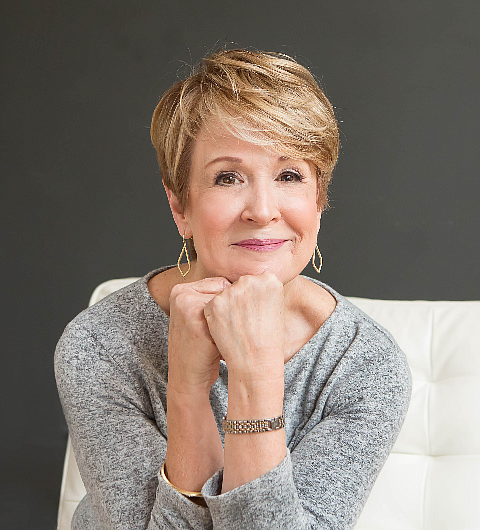De-Stress for Less
Who We Are Now
June 1, 2022 at 8:29 a.m.
Margaret Larson, long-time national journalist, retired last year after hosting KING 5’s “New Day Northwest” for 10
years. Photo courtesy KING 5.
...by Margaret Larson
Dr. David Johnson, retired CEO of Navos and current Seattle psychotherapist in private practice, reports: “There’s been a dramatic increase in anxiety and depression with the pandemic and increased polarity in the nation. Where we once saw a prevalence of one in five people in any given year suffering these symptoms, now it’s one in three.”
For young people, the numbers are even more dire. The kids are not all right. And that’s not okay. For us as individuals, parents and grandparents, all of this can lead to feeling helpless and futile. How do we help friends and family when we need help ourselves? How do we go from distress to de-stress?
Pondering that question sparked a memory for me. Many years ago, I attended a University of Washington talk with Dr. Robert Muller who spent forty years in service to the United Nations where he created the World Food Program among others, provided philosophical underpinnings for peace and human development, and authored books including the heralded memoir Most of All, They Taught Me Happiness. He was a lawyer, economist and a diplomat who believed world leaders should also focus on human happiness.
If the audience was expecting a dry bureaucratic recitation, it surely got the opposite. Dr. Muller was light and ebullient, funny. I wondered how a person who’d seen such global devastation could retain his relentless good cheer, even in the winter of life. I was about to find out.
In the Q&A, a man stood up and went through a litany of the world’s woes and mournfully asked what we could do about it. Dr. Muller chuckled. “You could pick up the trash on your way to work tomorrow!” He meant it. Wow. His advice was to return to ourselves, find our core strengths and build from there. Simple, yet profound. We don’t need to be a genius or possess wealth that could be seen from space. We just need to do something. Do something.
In today’s world, Dr. Johnson is onboard. “When someone is self-aware and accurate about their strengths, those strengths become highways to wellness. They help us feel confidence, remind us of who we are and assist in overcoming vulnerabilities.” What that involves is different for each of us. But doing what we can do, with a tangible before and after, is a major de-stressor. And it’s a skill we can teach others. Maybe it’s taking a volunteer shift, gardening, exercising, donating. Quantifiable doing is the thing. And when it benefits others: bonus points. “Doing things that increase the beauty or function of our community gives one the sense of accomplishing something valuable,” Dr. Johnson says. “It can be a meditative practice that eases feelings of defeat.”
I count myself quite lucky, but these shot-out-of-a-cannon times for me included an unexpected retirement to attend to urgent family issues, buying a house over the internet and moving temporarily to the other coast, mid-pandemic. But Dr. Muller and Dr. Johnson were with me in spirit when I bought my nine-dollar grabber tool, stuck garbage bags in my pockets and headed out to collect the litter along a busy street. As the bags got fuller, my anxiety dissipated. Highly recommend. We can’t control a virus or a war halfway around the world or the behavior of others, much as we might like. But we can invoke the AAA theory—Action Alleviates Anxiety. And if your back is better than mine, you can even skip the grabber tool and bring the grandkids with you. We all love a discount. Think of it as de-stress for less.
Margaret Larson retired last year as host of KING‘s New Day Northwest. Her impressive 35-year career included stints as a London-based foreign correspondent for NBC News and as a news anchor for the Today show, as well as a reporter for Dateline NBC and anchor at KING 5.
Connect with Margaret Larson at:
• www.facebook.com/margaretlarson.newday
• @Margaret_Larson on Instagram
• @_MargaretLarson on Twitter
• https://mentor.cam/margaretlarson





